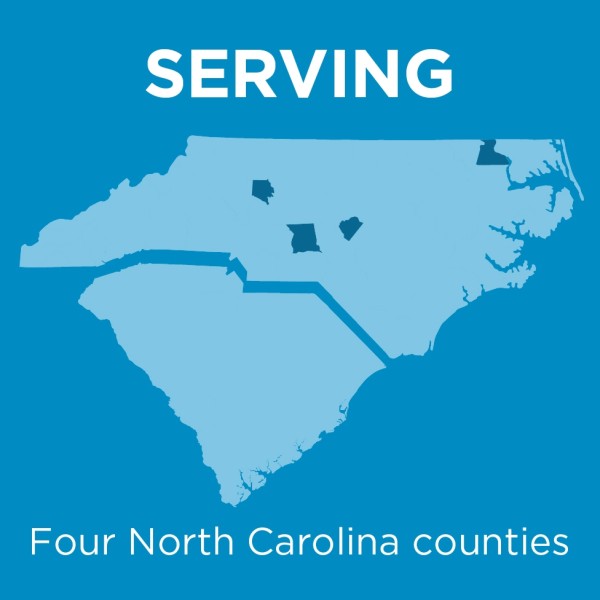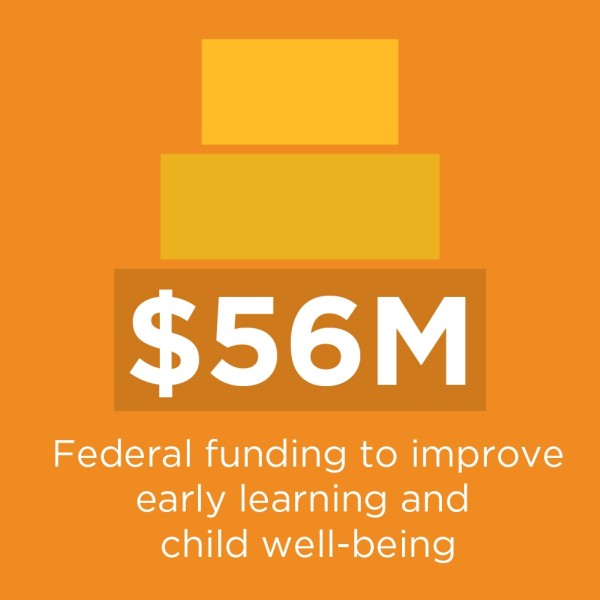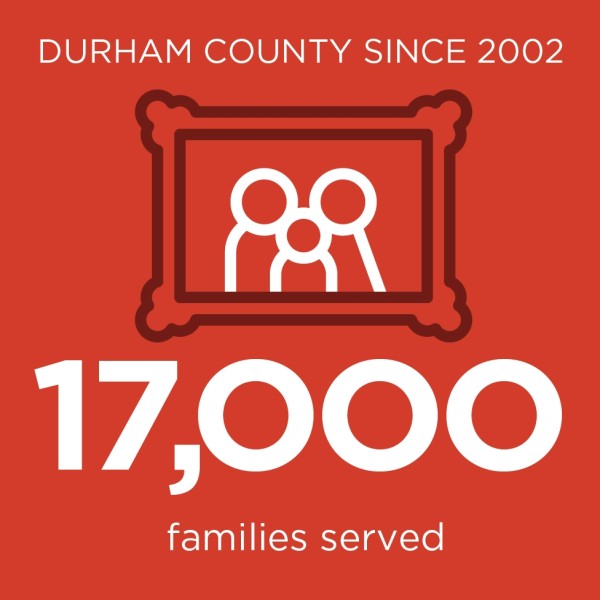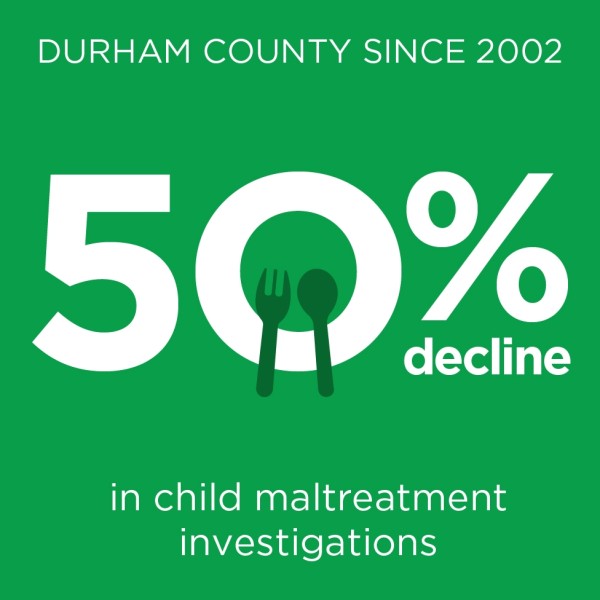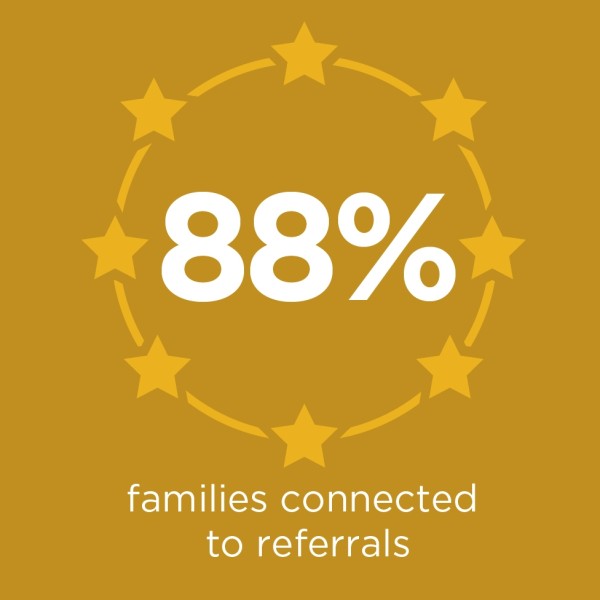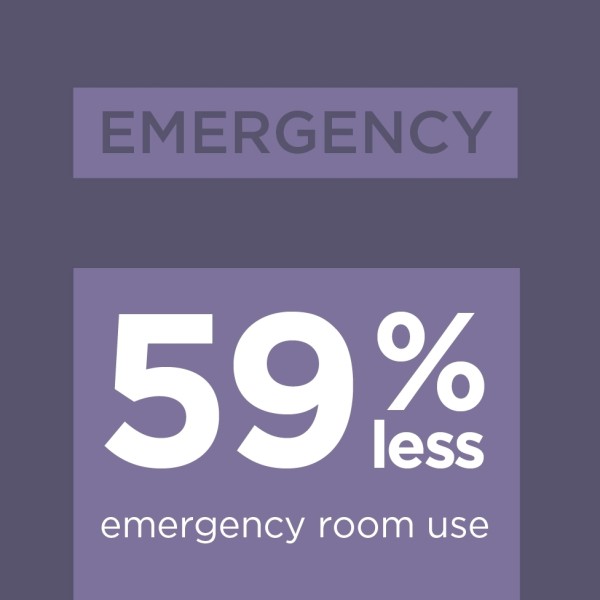When Jeff Quinn speaks to communities about Family Connects International, he takes pride in the fact that the program has its roots in his hometown of Durham, N.C. From its early days as a Durham County pilot in 2008, Family Connects has provided home visits to more than 61,000 families, and it’s now working with 40 sites in 17 states.
“We’ve presented to state Senators and Representatives and, not too long ago, the former First Lady of Illinois invited us to speak at a conference for all the First Ladies and First Men of the United States,” says Quinn, Family Connects’ national director of programs. “It has been amazing to expand from those early days of research to the entire city of Chicago and the entire state of Oregon.”
The model was developed as a partnership among Duke University’s Center for Child and Family Policy, the nonprofit Center for Child & Family Health, and the Durham County Department of Public Health as a way to improve child outcomes — specifically, to reduce the rate of child abuse and neglect in the first years of life. Through home visits from nurses to parents of newborns, the goal is to connect families to the support they need to thrive.
Two randomized controlled trials have produced positive findings, including decreased emergency room use and lower rates of maternal anxiety and depression. Research also links Family Connects to substantial reductions in child maltreatment investigations in children’s first five years. The study, which appeared in the July 7, 2021, JAMA Network Open, shows that families who were offered Family Connects experienced 39 percent fewer investigations for suspected child abuse and neglect than other families in the same community.
Over the years, funding from The Duke Endowment has supported model development, testing and replication efforts.
Learn more about the program in the following interview with Quinn.
Q. As more people recognize the importance of a strong start for children, Family Connects is experiencing much growth. Why are communities interested?
A. For one thing, we’ve received some great media attention in the past couple of years in regional and even national outlets such as “CBS News This Morning.” Communities are coming to us after seeing a presentation about Family Connects. Many of them have already invested a lot of time and effort in maternal and child health. We look at how we can strengthen and align what has already been built to make it even better.
Q. What does Family Connects bring to the table?
A. Family Connects is a community-level health-based approach that works on building the local system of care and using universal nurse-home visits to drive the process. Through Family Connects, communities can say, “It’s important to us for every baby and every family to have a good start.”
In each expansion area, we help plan for the model’s implementation and sustainability. We train the registered nurses who will conduct the home visits.
After the program launches, the newborn’s primary caregivers, including foster and adoptive parents, are offered a Family Connects visit shortly after the baby’s birth. Most families receive that invitation at the hospital, but they can also learn about the program through pediatricians, OB-GYNs and community agencies. Family Connects is universal, which means that every newborn’s caregiver is offered a home visit.
Q. Describe those home visits for us.
A. The nurses provide health checks for both the infant and the birth mother, assess the family’s strengths and needs, and offer education and health guidance along with connections to resources and services if needed. The nurse documents the visit and relays the information to the family’s health care providers with the family’s permission.
Q. Why is it important to connect families to resources?
A. A lot of communities are resource rich, but they struggle to link families to those resources.
We found in our research that 94 percent of families from a universal sample needed some sort of support after bringing home a baby, whether it’s help with feeding and safe sleep or getting information about childcare and parenting groups. But we often heard from families that they didn’t know there was a local system of care or they didn’t know how to access it — or even if they did, it was tricky to navigate.
I think that’s where Family Connects fills a niche by bridging the gap between caregiver need and community resources. Our nurses are involved at the beginning of a child’s life connecting families to support.
We also work with communities to identify barriers and figure out how to problem-solve around those barriers. As a universal program, we have data at our fingertips explaining, for example, why families aren’t going to their well-child visit. Every site has a community advisory board with members who can help find solutions.
Q. How is Family Connects still innovating?
A. Following COVID restrictions, we were not able to do any home visits, so we switched completely to telehealth visits. We continue to provide the telehealth visits and monitor the success and effectiveness of this option.
After the murder of George Floyd last summer, we have begun to study our internal and external policies and examine how we could help our sites better address racial equity in their approach. Even though it’s a universal program, we want to make sure that every family has the same opportunity to participate.
Our team at Family Connects is always looking for ways to collaborate and innovate not only at out sites but at the national level as well. It’s imperative that we continue to deliver our program with the highest quality, but also see how we can innovate the model.
Q. Will telehealth visits continue?
A. We think we’re going to take a hybrid approach to our work indefinitely, offering a home visit but also offering a telehealth visit. Navigating the post-COVID world is a challenge. A lot of our networks of care and our public health systems were fractured from COVID and we’re trying to pick up the pieces.
Q. Is expansion a goal?
A. We want to reach as many communities and see as many families as we can. The caveat, though, is that we want to make sure that the program is getting implemented with the highest quality.
Q. Does the name — Family Connects International — mean it has expanded beyond the United States?
A. It’s still just in the United States. ‘International’ is aspirational.
Q. Your two children were born during the pilot in Durham, right? Did Family Connects help you and your wife after those births?
A. It’s funny you should ask that. I have a son who’s 11 and my daughter is 7. They both happened to be born during the randomized controlled period and both were randomized to the control groups.
My wife said, “Can’t you do something? You work for the program!” I had to tell her “In the name of research, I can’t.”
Q. You’ve been with Family Connects since its beginning, first with its formative research and then, as it began to expand, as director of community alignment before stepping into your current position in 2019. Why has this program earned your dedication?
A. We know that brain neurons — I often call them the ‘highways of the brain’ — are developed from birth to age 3. Through Family Connects, we offer wonderful resources at the time that is so important to a baby’s life. We help put families and babies in the best place during those formative years — providing support communitywide.

